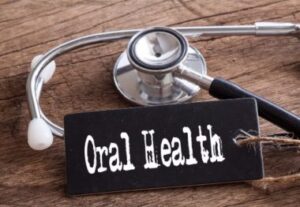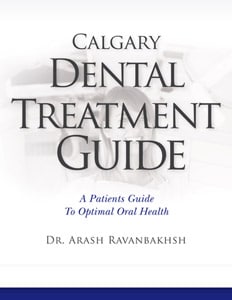Dental Treatment is an important part of preventing and treating oral disease. At Inglewood Family Dental, we created the Calgary dental treatment guide to help patients better understand their oral health and answer any questions they may have about the treatments we offer. If you have questions about dental treatment, contact us today to arrange your consultation with dedicated Calgary dentist Dr. Arash Ravanbakhsh.
About Inglewood Family Dental:
 At Inglewood Family Dental, our goal is always to offer a high standard of care for every patient who walks into our dental clinic. We are in tune with the needs of our patients, offering treatment options that are designed to best meet the needs of your oral health—we help our patients achieve optimum dental wellness.
At Inglewood Family Dental, our goal is always to offer a high standard of care for every patient who walks into our dental clinic. We are in tune with the needs of our patients, offering treatment options that are designed to best meet the needs of your oral health—we help our patients achieve optimum dental wellness.
Our ongoing commitment to the continuing education of our dental team allows us to continue providing you with optimum dental care. Our team is always there to answer any questions that you have about our dental services, finances or office policies. We are also happy to offer advice on how to maintain your oral health and wellness between visits. Keep reading our Calgary dental treatment guide to find out what sets us apart from other dental clinics.
Why Choose Inglewood Family Dental?
What sets Inglewood Family Dental apart from other dental clinics is we are a local clinic that is owned by the practicing dentist. We truly care about our patients, and we want to provide a high level of quality customer service. We are a family-based clinic, and when I say family, I really mean it. I have the pleasure of working with my mom and dad, here every day, which is awesome! I also live in the community, so I often get the pleasure of seeing and interacting with the patients that we have here, which is a huge benefit for me and makes my job a lot more enjoyable.
We are a full-service clinic, so we cater to all ages, from very young to very old. We offer a full range of services and through continuing education and practice we’ve been able to build up a system so that we can provide most of the treatments you need here at our office.
We Follow The Alberta Dental Fee Guide
One of the biggest questions on people’s minds when it comes to dental care is often the fees. People want to know what they’re going to be charged for certain procedures. At Inglewood Family Dental, for us to make care easily accessible to our patients, we’ve actually decided to follow the Alberta Fee Guide that’s been proposed by the government. A huge benefit of that is a lot of times insurance companies match what they pay out based on what the fee guide recommends. If you have insurance that covers your procedures at 100%, our fees will not exceed that recommended amount. In some circumstances, where some clinics might not follow the fee guide, you may still be responsible for a portion that is above and beyond the fee guide. This often helps our patients avoid additional out-of-pocket expenses for their dental treatment.
We Offer Evening and Weekend Hours
When I was in dental school, I used to be very stressed during exam time, and that would lead to me grinding my teeth. Because of this, one weekend, I decided to get a night guard. I had a really tough time finding a dentist that was close to me that was open on a weekend, so I understand people’s schedules are busy and everyone has things to do. Because of this, I wanted to offer the most convenient services available, so several days a week we are open late, and we are also open on weekends to offer services to people that can’t make it during the normal 9 to 5 hours. If you’re looking for an appointment and can’t seem to fit it into your busy schedule, contact us today to arrange a evening or weekend appointment.
Financing Options
At Inglewood Family Dental, we understand that life can get expensive and sometimes dental treatment can’t wait. That’s why we do offer zero percent interest if you’re needing a payment plan. We’re very flexible in terms of helping you work something out in order to be able to complete your dental treatment properly. If you need dental treatment but have been putting it off because you are worried about the cost, contact us today to learn about our flexible financing options.
How Often Should You See the Dentist?
A lot of people wonder how often they should go see their dentist. A lot of that is dependent on who you are and what your situation is specifically. Generally, with kids, we like to encourage them to come in as soon as they can, and a lot of times it means just hanging out and getting familiar with the office because at that point, they’re not really doing much besides getting familiarized with the instruments, the mirror, counting their teeth, etc. Some people require a more regular recall frequency, especially those that may be suffering from gum disease or have a high caries risk. Again, a lot of it is individualized to your condition, your situation, and your goals in terms of your oral health. If you are due for a check-up, please contact us to arrange your consultation.
What to Expect at Your First Appointment?
When a new patient comes in for their first dental appointment, we have them fill out a few forms to get a basic background of their dental history. We also like to become familiar with you in terms of what’s needed, what’s not needed, and discuss your goals and ambitions. Once we gather all that information, we’re able to coordinate with your dental benefits and bring you in for an exam.
At our exam appointment, we take the necessary diagnostic x-rays to identify any issues that you may be having with your teeth. We do offer a wide range of alternative dental treatment; because we know that it’s always nice to have options. A lot of times people want a more in-depth explanation of their oral condition, which we are happy to provide as well. Typically, that’s followed up with a cleaning appointment, where the buildup around your teeth is cleaned off to prevent gum disease and periodontal issues.
What Is Causing My Tooth Sensitivity?

Another thing that can happen is if you have a crack in the tooth, that can also cause sensitivity because again, those nerve endings are becoming stimulated and they’re not doing well at that point. Anything irritating the nerve – an acidic diet, which can wear away the tooth structure and cause the nerve to become irritated – that acid can come from sugary drinks; it can come from your diet, like citrus fruits; it can come from things like bulimia or GERD, so if you have a lot of reflux, that can cause issues as well. Over-brushing your teeth can also cause sensitivity.
I had a come in that was using whitening gel on her tooth brush as a toothpaste. Because of this, they basically wore away a good portion of their enamel. I always recommend using an extra soft toothbrush and you want to be very gentle when you’re brushing. Grinding can cause sensitivity as well. Putting excessive force on teeth for long durations of time causes the nerves to become inflamed and they show that their inflamed and unhappy by causing you sensitivity. Sometimes some of the restorative work that you’ve had in your mouth, such as fillings, if those come de-bonded – the contact between the filling and the tooth separates – that can cause sensitivity as well. If you or a loved one is experiencing tooth sensitivity, contact our office to arrange a consultation and let us help identify the root cause.
What Causes Bleeding Gums?
A lot of patients wonder what is causing their bleeding gums, and it’s not something you should ignore. Basically, the answer is plaque buildup or inadequate plaque removal. What happens is when you eat food, there’s plaque that forms on your teeth and this plaque causes your body to trigger an immune response. This immune response causes inflammation, inflammation causes bleeding, and that’s when you start seeing the red gums, swelling and bleeding. The first step of this cycle is called gingivitis. This is the reversible stage of the bleeding gums and it’s the stage where it hasn’t led to bone and gum loss yet.
The following stage would be periodontitis, and that’s where you start seeing some irreversible damage – recession of the gums, recession of the bone. A lot of times people develop loose teeth and various gum infections at that stage. It can also lead to bad breath. It can lead to changing your taste. Furthermore, it is closely correlated with diabetes control. It increases your risk of heart disease, stroke, and studies even show some cancers as well. Bleeding gums is something to be concerned about if you have it, and there are definitely ways to address it.
How Can I Prevent Cavities?
Patients often come to us and ask how they can prevent getting cavities in their mouth. A lot of people pride themselves on taking really good care of their bodies, and one of the things that really bugs them is they seem to develop cavities all the time and they just don’t know why. A lot of times after we have that discussion with them, they identify several areas where they can improve so that in the future they don’t develop as many cavities.

The other thing you can do to prevent cavities is making sure that your diet is under control. You want to make sure that you’re eating a diet that’s low in sugars and low in soft drinks. Soft drinks are really bad for you. They have a lot of acid content, they have a lot of sugar, and these simple sugars are broken down quicker and they create the acids that wear away our teeth and cause cavities quicker.
Some other things you can do is making sure that you don’t smoke. Smoking affects your oral flora, or the type of bacteria that enter your mouth and can cause a decrease in saliva as well. A decrease in saliva puts you at a higher risk for developing cavities, as saliva causes a buffering environment for the teeth so that when acids are created, they’re not as detrimental to the health of your teeth. The other thing you want to make sure you’re doing is staying hydrated, drinking lots of water. Fluoride is a very important mineral in maintaining your oral health and making sure you don’t get cavities. Make sure you’re brushing with toothpaste that has fluoride and make sure you spend an adequate amount of time brushing.
What If I Need A Cavity Filled?
Cavities unfortunately happen frequently, especially in some people. Some people never get cavities their entire lives, but when you do get a cavity, people want to know what the process of getting that cavity filled is. Basically, a lot of it depends on where it is and its size. Sometimes you can fill a cavity without doing any local freezing. An example is when it’s on a tooth that’s been previously root canaled or it’s fairly small, sometimes you can get away with not freezing the tooth. A lot of times though, in order to get that cavity out, you must make sure that the tooth is frozen so that you’re not able to feel the pain while the cavity is being removed using the dental drill. Basically, you are frozen for it and at that point, the infected tissue is removed using carbide and diamond burs.
Once that tissue is removed, the tooth is now ready to receive a filling. There are a few different filling materials available such as; glass ionomers, composites, and amalgams. Generally, the most used one is composites. When filling a cavity, we condition the tooth and get it ready for receiving filling material, use some bonding agents to cause adhesion between the filling of the tooth, and then we apply the dental composite material. At that point, it is cured or hardened using our special light.
What Are Dental Crowns?
A lot of times, patients inquire about what a dental crown is, and what I usually tell them is that it’s like a little hat that goes on the top of your tooth and helps protect it. You can receive a crown for various reasons, but the most common reason is that the tooth has had some sort of damage, whether it’s a cusp that’s broken off or there’s a preexisting large filling. Basically, the process of placing a dental crown is that we shave around the tooth a little bit, about one millimeter, and we take an impression of that tooth. That impression gets sent to our dental lab, which fabricates dental crowns, and then it gets sent back to us and we end up placing that crown on the tooth with special cements that we have. What the crown does is it helps protect the tooth from breaking. It also helps improve the tooth’s appearance or aesthetics.
With dental crowns, there’s several types of material we can use as well – there’s gold, there’s porcelain, and there’s porcelain fused to metal. A lot of times we use zirconia these days, which is a very strong anesthetic substance. It just depends on the clinical situation and what we want to achieve.
Does My Oral Health Impact My Overall Health?

Some recent studies have found a correlation between your body and your mouth including the fact that diabetes control is closely related to how healthy your mouth is. Making sure your blood sugars are at a stable level for a long duration of time is important, and gum disease can actually disturb that pretty significantly. It’s been shown to lead to premature labor, low birth weights, sleeping problems. It’s also been closely correlated with heart issues – heart attacks, heart disease, even stroke. What happens is the bacteria in our mouths, if they’re not in control, or if there’s too much of them or if there’s too many bacteria that shouldn’t be there, it can spread. It can go into your lungs, leading to things like pneumonia, COPD, emphysema – all of those have been correlated with gum disease.
What Are Dental Implants?
When people come into the office with missing teeth, they generally want to know how they can replace those missing teeth. Sometimes they’ve heard of different dental treatment options to replace those missing teeth, one of which might be a dental implant. They ask what are the benefits of dental implants and what are the drawbacks in relation to other dental treatment modalities? Basically, dental implants are screws that form a bond with the jaw, called osteointegration, and you can use these screws to hold a tooth so that you can replace the missing tooth that’s been bothering you.
The main benefit of a dental implant is that you regain chewing function and you’re able to eat; and for aesthetics, sometimes that becomes huge as well. With dental implants, one of the benefits compared to some of the traditional ways of replacing teeth is you don’t have to touch adjacent teeth. When we do a bridge, we must cut the teeth that are beside the edentulous or missing tooth space. With the dental implants, you no longer have to do that, so a lot of people like that better. Sometimes it makes cleaning easier as well. With a bridge, you have to floss underneath it. A lot of times with a dental implant, especially for a single-tooth dental implant, you can just floss between the teeth and treat it like a normal tooth in your mouth.
What Is Bone Grafting?
Patients that require dental implants need to have enough bone for the implant to be adequately supported. Sometimes we must do a bone graft in order to make sure that that bone is present. There are a few different ways of doing this. One is after your tooth is extracted, we can do what’s called a socket preservation. This procedure entails placing some bone inside the socket and putting a membrane on the top of it. Studies have shown that it decreases the rate of bone loss in the area when you do that.
Sometimes you need more extensive bone grafting, so that might include taking bone from other parts of your body and adding it to the area that needs a bone graft, and there’s different techniques and different ways of doing it. A lot of the more advanced bone grafting techniques will require a specialist called a periodontist, but some of the simpler bone grafts can be completed here. Again, it depends on the situation and our dental treatment goals with the patient.
What Are Dentures?
A lot of times when people have missing teeth, they want to know their options for replacing these missing teeth. One of those options would be a denture. Dentures can be full dentures, or they can be partial dentures. They can be dentures that go in immediately after teeth are extracted, or they can be dentures that are placed in after some time has passed and your bone and gums have had a chance to heal.
With dentures, specifically, they are attached to the bone in your mouth; they kind of rest over the top of your gums, so they’re not going to be as stable as your natural dentition. Partial dentures are generally more stable than full dentures because they are actually using the other teeth in the mouth as anchorage. Still, it’s something that’s removable and not as stable as your natural dentition.
Fluoride and Tooth Decay

Fluoride Treatments
A fluoride treatment is a way for you to receive extra fluoride in your mouth. Above we discussed that fluoride is important for keeping your teeth strong. It creates fluorapatite and prevents the tooth from developing those porosities which cause tooth decay. The ways you can receive fluoride treatments or fluoride in your saliva is in terms of toothpaste. Toothpaste has fluoride in it, though not all of them do, so make sure you’re reading the ingredients on the toothpaste. The other way you can receive fluoride is through fluoride rinse or fluoride gel, which you’ll receive at your hygiene appointments here at Inglewood Family Dental. There are also mouthwashes that contain fluoride, and there’s also at-home fluoride treatments you can purchase. A lot of cities actually have fluoride in the water. Unfortunately, Calgary is not one of those places, so you do have to be aware of that and just make sure that you’re getting fluoride as needed.
Invisalign Braces (Clear Aligners)
Invisalign braces, also known as clear aligners, are a method where you can shift your teeth without having to undergo traditional brackets or metal braces that we’re accustomed to seeing. How they work is that custom plastic trays are fitted over your teeth and they incrementally move your teeth over time, slowly into its proper position, and that can help with aesthetics. It can help with clensibility; function; and even speech. These days, clear aligners – which Invisalign is – are successful in treating most types of issues related to dental malocclusion or crowding.
What Are Night Guards?
Oftentimes, we see patients that have never been to the dentist before. During our initial consultation, we take x-rays and other internal photos, and sometimes notice that the teeth are very flat. As the discussion continues, we go into the history, how the patient presents. A lot of times they end up complaining of a sore jaw in the morning; they might complain of tooth sensitivity, jaw pain; they may complain of teeth that are shifting and teeth that have become shorter. We can use all these telltale signs in conjunction with a clinical history to identify if grinding is happening. A lot of times patients know because their husband or wife is constantly complaining about it, so some people just walk in like, “Hey, I grind my teeth. What can I do about it?”
A lot of times we recommend getting a night guard or a bruxism appliance. A night guard is a thin layer of plastic, worn either on your top or bottom arch, that prevents the teeth from rubbing against each other, causing the teeth to rub against the plastic instead. We also make it ideal to your bite and we make it ideal to your specific circumstance. Sometimes people have jaw problems, sometimes people have sleep apnea, so those are things we can identify during a clinical exam and when we’re making decisions in relation to if a night guard is an appropriate dental treatment modality for you. If you think you may be grinding your teeth at night, contact our office to see if night guards may be right for you.
Pediatric Dentistry for Children

What Are Porcelain Veneers?
Anytime your teeth have issues, whether it be functional or aesthetic, there are multiple ways of resolving those issues. Sometimes a dental treatment called a dental veneer is appropriate. When we discuss that with patients, they want to know what is a dental veneer? What a dental veneer is, it’s a thin layer of porcelain that gets pasted on top of your tooth. Sometimes you must remove a little bit of tooth structure for you to be able to fit that thin layer of porcelain over the top of it, but basically the function of that porcelain is to cover up discoloration. It can also help with teeth alignment and overall aesthetics, providing a less invasive way of achieving the smile of your dreams.
What Is Root Canal Therapy?
Your teeth have nerves inside of them and sometimes those nerves can die. When those nerves die or start to die, it can cause pain and can cause infections to develop. In situations like that, you can get a root canal. When I tell people that, a lot of them ask what is root canal therapy?
When performing root canal therapy, we basically create a little hole on top of the tooth to gain access to the nerves that are inside of the tooth. Through several tools that we have, we clean out the inside of the tooth, to the best of our abilities, and we disinfect it and fill it in with some inner gutta percha, so that we give the tooth the best chance of survival. We also take away the tissue that the bacteria were using to cause infections and their byproduct.
Do You Offer Sedation Dentistry?
A lot of times we see patients that have had bad previous dental experiences, or they generally have some phobias in relation to dental treatment, and despite their best efforts, they’re still not able to get over it. They often inquire if sedation is available as a treatment modality. Here at Inglewood Family Dental we do offer several sedation options. One of them is the nitrous gas and that’s one of the safest forms of sedation that we offer. It’s a gas that you inhale and for a lot of people causes a decrease in anxiety, a feeling of lightheadedness and calmness. Another added benefit is in some patients, it reduces the gag reflex, so some people actually find it beneficial in that sense.
The other option we have is the oral sedation, and that’s the pill you take about an hour before the procedure starts. Again, it does offer, in most people, some decrease in apprehension and just being a little bit calmer for the duration of the procedure. We can also mix the oral and nitrous together if people require that as well.
Sports Mouthguards
A lot of times people come in, especially athletes, and they complain about teeth that are broken, chipped, or sensitive, and they want to know what they can do to help protect their teeth. A lot of times we discuss a sports guard or a mouth guard for them. They often want to know the benefits of having these mouth guards. A mouth guard is a layer of plastic that goes over the top of your teeth and helps protect it from damage, from external or internal sources. Let’s say you get hit and your teeth smash against each other. Instead of smashing into each other, it’s now hitting the plastic instead, which makes it a lot less likely to cause damage to your teeth.
Tooth Extractions
Sometimes we get to a point where a tooth needs to come out of the mouth for various reasons, whether it be a wisdom tooth that has a high risk of causing future issues or a tooth that’s broken down, is not restorable, or hurting. Patients want to know about the process of getting a dental extraction. How dental extractions typically happen, is that the tooth that is to be removed from the mouth is frozen. Once that tooth is frozen, what we do is we separate the gums from the tooth and slowly start to move the tooth in its bony sockets, to detach the ligaments that are holding the tooth to the bone, and through various instruments and various techniques, we slowly work the tooth out of the socket and out of the mouth.
Sometimes some teeth have roots that are hooked, sometimes they have roots that are converging, and we need to utilize special techniques such as splitting the roots or removing some bone from around the tooth in order to extract the tooth. A lot of times we will go over that before the procedure, especially if the x-ray shows that complications can arise, or we take special precautions when we are taking a tooth out.
A Message From Dr. Arash:
I want to thank you for taking time to read the Calgary dental treatment guide. We really pride ourselves on the quality of the material that’s here, and I hope that you get some good use out of it. If you have any issues or concerns at any point, feel free to give us a call, even if you want to just come in and meet our team, and see the clinic. We offer initial consultations and would love to help you out in any way that we can.
About the Author:

Dr. Ravanbakhsh is a former instructor at the University of Alberta Dental School and now works in general practice as a general dentist. He has now become the owner of Inglewood Family Dental in the trendy neighborhood of Inglewood in Calgary.
Personally, Dr. Arash (as he likes to be called), enjoys traveling and participating in dental mission trips to various locations around the world.
To request your appointment with Dr. Arash Ravanbakhsh at Inglewood Family Dental, please contact our office today.


